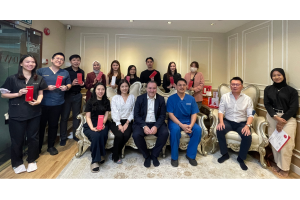June 3, 2024
Types of Keloids
Keloids are a type of abnormal scar that can develop after skin injury, such as surgery, burns, piercings, or acne. These scars are characterized by excessive collagen deposition, which leads to the formation of raised, firm, and often itchy or painful lesions that extend beyond the boundaries of the original wound.
One of the most common types of keloids is the linear keloid, which forms along the line of the original wound and can extend significantly beyond the initial scar area. Papular keloids, on the other hand, are small, raised, and firm nodules that can appear anywhere on the body. Nodular keloids are larger, more prominent, and often have a nodular or bulbous appearance. Tumoral keloids are particularly concerning due to their large size and irregular shape, which can be quite disfiguring. Finally, pedunculated keloids are attached to the skin by a stalk-like structure and can be quite mobile.
Keloids can vary in appearance, size, and location, but they all share the common feature of excessive collagen deposition leading to abnormal scarring. This excessive collagen production is thought to be caused by a combination of genetic and environmental factors, including skin tension, inflammation, and growth factors. Individuals with darker skin tones are more prone to developing keloids, and certain areas of the body, such as the earlobes, shoulders, and chest, are more susceptible to keloid formation.
At Da Vinci Medical, we understand the challenges of treating keloids, which often recur and can be resistant to conventional therapies. We offer a range of advanced treatments tailored to address these complexities. Our options include Fractional CO2 Laser, Advanced Yellow Laser, and Surgical Removal.
Depending on the keloid’s size and location, a combination of these treatments may be recommended to achieve optimal results in reducing keloid size and symptoms effectively.
Book now for a FREE Consultation with our doctors.
Newsletter
Be the first to know about new treatments, events, and articles.





